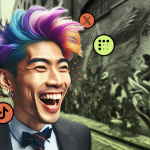By The Malketeer
Like it or not, leveraging the power of artificial intelligence (AI) has become an undeniable imperative for marketers aiming to stay far ahead of the curve.
From research to copywriting to sound boarding ideas, AI offers limitless potential to boost content marketing endeavours.
However, understanding how to harness its capabilities effectively is the primal key to success.
Let’s delve into 10 dynamic ways you can leverage AI to revolutionise your marketing efforts.
Audience Segmentation and Personalisation
AI-driven algorithms can analyse vast amounts of data to segment your audience based on demographics, behaviour, and preferences.
By understanding your audience on a deeper level, you can tailor personalisedmarketing messages and offers, increasing engagement and conversions.
For example, Netflix utilises AI to recommend personalised content to its users based on viewing history and preferences.
Content Creation and Curation
AI-powered tools can generate high-quality content at scale, saving time and resources for marketers.
Natural language generation (NLG) algorithms can produce blog posts, product descriptions, and social media updates with human-like fluency and coherence.
Additionally, AI can curate content from various sources, ensuring that your audience receives relevant and valuable information.
The Associated Press uses AI to automate the creation of earnings reports, freeing up journalists to focus on more in-depth storytelling.
Keyword Research and SEO Optimisation
AI-powered SEO tools can analyse search trends, competition, and user intent to identify high-value keywords for your content.
By optimising your website and content around these keywords, you can improve your search engine rankings and drive organic traffic.
Tools like SEMrush and Moz utilise AI to provide actionable insights for SEO strategy optimisation.
Predictive Analytics and Forecasting
AI algorithms can analyse historical data to predict future trends and outcomes, helping marketers make informed decisions.
Predictive analytics can forecast customer behaviour, demand for products, and market trends, enabling you to allocate resources effectively and capitalise on emerging opportunities.
Amazon uses predictive analytics to anticipate customer preferences and optimiseinventory management.
Email Marketing Automation
AI-powered email marketing platforms can automate various aspects of the email marketing process, from segmentation to personalisation to scheduling.
By delivering the right message to the right person at the right time, you can improve open rates, click-through rates, and conversions.
Mailchimp’s AI-driven platform analyses customer data to deliver personalisedrecommendations for email content and timing.
Social Media Management and Engagement
AI tools can analyse social media conversations in real-time, allowing marketers to monitor brand mentions, track sentiment, and identify engagement opportunities.
AI-powered chatbots can interact with customers on social media platforms, answering questions, providing assistance, and guiding them through the sales funnel.
Sephora’s Virtual Artist chatbot uses AI to recommend makeup products based on user input and preferences.
Ad Targeting and Optimisation
AI-driven advertising platforms can analyse user data to target ads more effectively and optimise campaign performance.
Machine learning algorithms can identify patterns and trends in customer behaviour, allowing you to deliver highly targeted ads to the most relevant audiences.
Facebook’s ad platform uses AI to optimise ad delivery based on factors like audience engagement and conversion likelihood.
Voice Search Optimisation
With the rise of voice-enabled devices like smart speakers and virtual assistants, optimising content for voice search has become essential.
AI-powered voice search optimisation tools can analyse natural language queries and generate voice-friendly content that ranks well in voice search results.
Brands can leverage tools like Google’s Dialogflow to create conversational experiences for users interacting with voice-enabled devices.
Sentiment Analysis and Reputation Management
AI algorithms can analyse text data from customer reviews, social media posts, and online forums to gauge sentiment and manage brand reputation.
Sentiment analysis tools can identify positive and negative sentiment trends, allowing marketers to respond proactively to customer feedback and mitigate potential crises.
Brands like Airbnb use sentiment analysis to monitor guest reviews and improve the overall guest experience.
Performance Monitoring and Optimisation
AI-powered analytics platforms can track and analyse marketing performance metrics in real-time, providing actionable insights for optimisation.
By monitoring key performance indicators (KPIs) like website traffic, conversion rates, and customer engagement, marketers can identify areas for improvement and make data-driven decisions to maximise ROI.
Google Analytics utilises AI to generate automated insights and recommendations for website optimisation.
There’s no doubt that AI presents unparalleled opportunities for marketers to optimise their efforts and drive meaningful results.
By embracing AI-powered tools and technologies across various marketing functions, businesses can gain a competitive edge and deliver personalised, engaging experiences to their target audience.
As AI continues to evolve, marketers must stay agile and innovative, leveraging AI to adapt to changing consumer behaviours and preferences.
One irrefutable way is to join us at the Malaysian Marketing Conference and Festival 2024 where you can learn to harness the might of AI and elevate your marketing efforts to unprecedented heights.
MARKETING Magazine is not responsible for the content of external sites.









